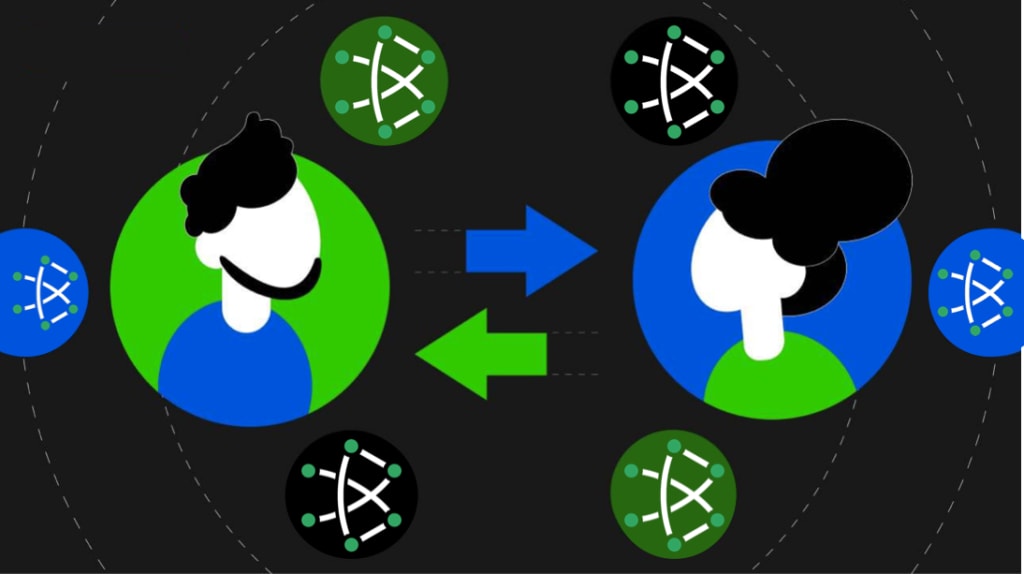Bazaars App: Revolutionizing Commerce through Decentralization and Peer-to-Peer Ecosystems
Bazaars App: Revolutionizing Commerce through Decentralization and Peer-to-Peer Ecosystems

The current evolution of commerce is witnessing a significant transition towards decentralization
and peer-to-peer (P2P) ecosystems. Bazaars, a pioneering platform, has emerged as a transformative player by introducing innovative approaches to redefine the dynamics of purchasing and selling goods and services.
Decentralization in the Commerce Landscape
The term "decentralization" has gained substantial momentum in recent years for valid reasons. Traditional centralized systems typically involve a single authority or intermediary overseeing information, resources, or transactions. In the commerce realm, reliance on centralized marketplaces or e-commerce platforms introduces limitations and challenges.
In contrast, decentralization redistributes control across a network, eliminating the need for a central authority. Leveraging blockchain technology, a decentralized ledger system ensuring transparency, security, and trust in transactions, Bazaars App taps into the potential of decentralization. This empowers users to engage in commerce without the constraints associated with a central authority.
Bazaars and the Peer-to-Peer Ecosystem
Peer-to-peer ecosystems represent a departure from traditional business models by facilitating direct interactions between users. This model leverages decentralized networks, eliminating intermediaries and enabling users to transact directly with each other. P2P ecosystems have gained popularity across various industries, from finance with cryptocurrencies to file sharing, and now, commerce through the Bazaars app.
Operating on a P2P model, the Bazaars app connects buyers and sellers, removing intermediaries, lowering transaction costs, and fostering a sense of community and trust among users. In a P2P ecosystem, power is distributed among participants, creating a more inclusive and democratic marketplace.
Advantages of Decentralization and P2P Ecosystems
The Bazaars app and the broader movement towards decentralization and P2P ecosystems offer several advantages that are reshaping the commerce landscape:
Lower Transaction Costs: Traditional commerce involves various intermediaries, each taking a cut of the transaction. Decentralized platforms like Bazaars significantly reduce these costs, enabling buyers and sellers to transact with more retained funds.
Global Accessibility: P2P ecosystems eliminate geographical barriers, allowing users from different parts of the world to connect and transact seamlessly. Bazaars app opens up new markets for both buyers and sellers, promoting global economic inclusivity.
Security and Trust: Blockchain technology, the backbone of decentralized systems, ensures a secure and transparent environment for transactions. Smart contracts, a feature of many decentralized platforms, automate and enforce agreements, fostering trust among participants.
Community Building: By eliminating intermediaries, P2P ecosystems like Bazaars encourage direct communication between users. This not only builds a sense of community but also allows for personalized interactions and negotiations, enhancing the overall user experience.
Censorship Resistance: Decentralized systems are resistant to censorship, operating on a distributed network rather than a central server. This ensures that participants have the freedom to engage in commerce without the fear of arbitrary restrictions.
Challenges and Considerations
While the benefits of decentralization and P2P ecosystems are evident, it's crucial to acknowledge the challenges and considerations that accompany this paradigm shift:
Regulatory Uncertainty: The regulatory landscape for decentralized platforms is still evolving. Bazaars app and similar platforms must navigate a complex regulatory environment to ensure compliance and legitimacy.
Scalability: As decentralized systems gain popularity, scalability becomes a critical consideration. Bazaars app must address challenges related to transaction speed and network congestion to accommodate a growing user base.
Education and Adoption: Many users are still unfamiliar with the concept of decentralization and P2P ecosystems. Bazaars app and similar platforms need to invest in user education to promote understanding and widespread adoption.
Conclusion
The Bazaars app serves as a compelling example of how decentralization and P2P ecosystems are reshaping the future of commerce. By leveraging blockchain technology and eliminating intermediaries, Bazaars fosters a more efficient, accessible, and community-driven marketplace. As the world continues to embrace the benefits of decentralization, platforms like Bazaars are at the forefront of a revolution poised to redefine the way we buy and sell in the digital age.





Comments
There are no comments for this story
Be the first to respond and start the conversation.